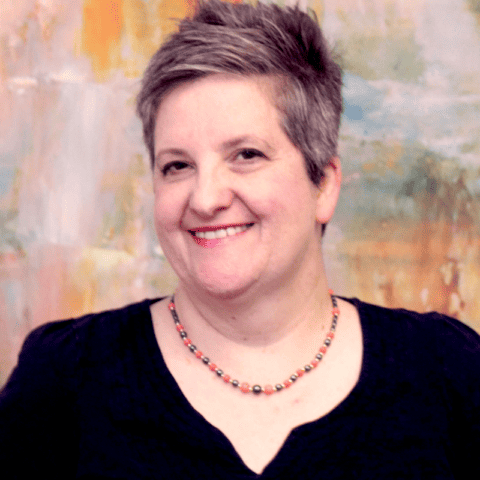Understanding Depression and Mood Disorders
In the domain of mental health, depression and mood disorders are complex conditions that affect millions of people worldwide. These disorders can greatly impact your daily life, relationships, and overall well-being.
Depression, one of the most common mood disorders, is characterized by persistent feelings of sadness, hopelessness, and loss of interest in activities you once enjoyed.
There are several types of mood disorders, with major depressive disorder and bipolar disorder being two of the most prevalent. Major depressive disorder involves prolonged periods of low mood, often accompanied by changes in sleep patterns, appetite, and energy levels.
Bipolar disorder, on the other hand, is marked by alternating episodes of depression and mania or hypomania.
It’s important to understand that mood disorders are more than just temporary feelings of sadness or mood swings. They’re serious medical conditions that can affect your thoughts, emotions, and behaviors.
While the exact causes of depression and other mood disorders aren’t fully understood, they’re believed to result from a combination of genetic, biological, environmental, and psychological factors.
Recognizing the symptoms and seeking professional help is essential for effective management and treatment.
Types of Depression
At Darby Integrative Counseling, we recognize that depression manifests in various forms, each with its own distinct features.
Our experienced therapists are well-versed in treating major depression, which can be intense and prolonged, as well as seasonal affective disorder that correlates with particular times of the year.
We also provide specialized care for other types of depression, including persistent depressive disorder, disruptive mood dysregulation disorder in children, and premenstrual dysphoric disorder in women.
Our integrative approach ensures that we tailor our treatment plans to address your specific type of depression and individual needs.
Major Depressive Disorder
Lasting at least two weeks, major depressive disorder is a severe form of depressive disorder that greatly impacts your daily life.
You’ll experience persistent feelings of sadness, hopelessness, and loss of interest in activities you once enjoyed. These symptoms are intense and can interfere with your ability to work, study, eat, sleep, and maintain relationships.
You may find yourself struggling with fatigue, difficulty concentrating, and changes in appetite or weight. Sleep disturbances are common, ranging from insomnia to excessive sleeping.
Physical symptoms like headaches or unexplained aches and pains may also occur. Major depression can affect your self-esteem, leading to feelings of worthlessness or excessive guilt.
In severe cases, you might’ve thoughts of death or suicide. It’s essential to seek professional help if you’re experiencing these symptoms.
Seasonal Affective Disorder (SAD)
Many people experience a form of depression that follows a seasonal pattern, known as seasonal affective disorder (SAD). This condition typically occurs during the fall and winter months when there’s less natural sunlight.
You may feel lethargic, have difficulty concentrating, and experience changes in your appetite and sleep patterns.
Persistent Depressive Disorder (PDD)
A chronic form of depression, persistent depressive disorder (PDD) can greatly impact your daily life for years. Also known as dysthymia, PDD is characterized by a persistent low mood that lasts for at least two years in adults or one year in children and adolescents.
You’ll experience symptoms similar to major depression, but they’re typically less severe and more long-lasting. If you have PDD, you might feel sad, hopeless, or irritable most of the day, nearly every day. You may struggle with low self-esteem, difficulty concentrating, and changes in appetite or sleep patterns.
Unlike major depression, which often comes in episodes, PDD symptoms are more constant and enduring. It’s important to note that you can have periods of normal mood that last up to two months, but these brief reprieves don’t negate the diagnosis.
PDD can also occur alongside episodes of major depression, a condition known as “double depression.” Treatment for PDD typically involves a combination of psychotherapy and medication.
Disruptive Mood Dysregulation Disorder (DMDD)
While persistent depressive disorder affects adults and older teens, disruptive mood dysregulation disorder (DMDD) is a diagnosis specifically for children and adolescents. DMDD is characterized by severe and persistent irritability, along with frequent temper outbursts that are disproportionate to the situation. These symptoms must be present for at least 12 months and occur in multiple settings, such as home, school, and with peers.
If you’re a parent of a child with DMDD, you’ll notice that their mood is consistently negative between outbursts. This chronic irritability can greatly impact their social relationships and academic performance. It’s important to seek professional help if you suspect your child may have DMDD, as early intervention can lead to better outcomes.
Premenstrual Dysphoric Disorder (PMDD)
Premenstrual dysphoric disorder (PMDD) is a severe form of premenstrual syndrome that affects 3-8% of women of reproductive age.
It’s characterized by intense emotional and physical symptoms that occur in the week or two before your period starts. These symptoms can greatly disrupt your daily life, relationships, and work.
If you have PMDD, you’ll experience at least five of the following symptoms:
- Extreme mood swings, including sudden sadness or tearfulness
- Increased irritability or anger
- Feelings of hopelessness or self-deprecation
- Anxiety or tension
- Decreased interest in usual activities
- Difficulty concentrating
- Fatigue or low energy
- Changes in appetite or food cravings
- Sleep problems (insomnia or excessive sleeping)
- Physical symptoms like breast tenderness or bloating
These symptoms typically improve within a few days after your period starts and are minimal or absent in the week after your period.
To be diagnosed with PMDD, you must track your symptoms for at least two menstrual cycles.
Related Mood Disorders
At Darby Integrative Counseling, we understand the importance of recognizing the full spectrum of mood disorders.
We often encounter patients who are familiar with depression but may not be aware of related conditions like bipolar disorder. Our experienced therapists can help you differentiate between major depression and bipolar disorders, including Bipolar I with its extreme manic episodes, and Bipolar II with its less severe hypomanic episodes.
We believe that understanding these nuances is crucial for accurate diagnosis and effective treatment. If you’re concerned that your symptoms might indicate something beyond major depression, we encourage you to schedule a consultation with one of our specialists who can provide a comprehensive assessment and personalized care plan.
Bipolar Disorder I
Characterized by extreme mood swings, Bipolar I disorder is a severe form of bipolar disorder. You’ll experience manic episodes lasting at least a week, where you feel euphoric, energetic, and sometimes irritable. These episodes can lead to risky behaviors and impaired judgment. You may also have depressive episodes, though they’re not required for diagnosis.
During manic episodes, you might:
- Feel invincible or have grandiose ideas
- Need little sleep but still have boundless energy
- Engage in impulsive activities like excessive spending or risky sexual behavior
Bipolar I can greatly disrupt your life, affecting relationships, work, and overall functioning. It’s important to seek professional help for proper diagnosis and treatment.
Medication is often necessary to stabilize mood swings. Mood stabilizers like lithium or anticonvulsants are commonly prescribed. Your doctor may also recommend antipsychotics or antidepressants, depending on your specific symptoms.
With proper treatment and support, many people with Bipolar I can lead fulfilling lives.
Bipolar Disorder II
Unlike its more severe counterpart, Bipolar II disorder involves less intense manic episodes, known as hypomania. You’ll experience periods of elevated mood and increased energy, but these won’t notably impair your daily functioning or require hospitalization.
However, you’ll still face depressive episodes that can be just as severe as those in Bipolar I. If you have Bipolar II, you might feel more productive, creative, and sociable during hypomanic episodes. You may need less sleep and engage in goal-directed activities with increased enthusiasm.
However, these periods are often followed by deep depressive episodes that can last for weeks or months. It’s essential to recognize that Bipolar II isn’t a milder form of bipolar disorder. The depressive episodes can be particularly debilitating and may occur more frequently than in Bipolar I.
You might struggle with concentration, lose interest in activities you once enjoyed, and experience changes in appetite and sleep patterns.
Treatment for Bipolar II typically involves a combination of mood stabilizers prescribed by a doctor and psychotherapy. Cognitive-behavioral therapy and interpersonal therapy can help you manage symptoms and improve your quality of life.
Causes of Depression and Other Mood Disorders
Several factors contribute to the development of depression and other mood disorders. While researchers don’t fully understand the exact causes, they’ve identified key elements that play a role in their onset.
Your brain chemistry, particularly imbalances in neurotransmitters like serotonin and dopamine, can greatly impact your mood. Genetics also play a part, as you’re about three times more likely to develop depression if you have a first-degree relative with the condition.
External factors can trigger or exacerbate mood disorders. These include:
- Stressful life events (e.g., loss of a loved one, trauma, divorce)
- Chronic medical conditions (e.g., diabetes, chronic pain)
- Substance use or certain medications
Your environment and lifestyle choices can influence your mental health as well. Lack of social support, isolation, and poor sleep habits may contribute to the development of mood disorders.
Additionally, hormonal changes, such as those experienced during pregnancy or menopause, can affect your mood. Understanding these potential causes can help you and your healthcare provider develop an effective treatment plan tailored to your specific needs and circumstances.
Therapies for Depression and Other Mood Disorders
For many people struggling with depression and other mood disorders, therapy is an essential component of treatment. There are several effective therapeutic approaches available, including cognitive behavioral therapy (CBT), interpersonal therapy (IPT), and psychodynamic therapy.
CBT helps you identify and change negative thought patterns and behaviors that contribute to your mood disorder. You’ll learn coping strategies and problem-solving skills to manage your symptoms better.
IPT focuses on improving your relationships and communication skills, addressing issues like grief, role changes, and interpersonal conflicts.
Psychodynamic therapy explores how your past experiences and unconscious thoughts affect your current mood and behavior. It can help you gain insight into deep-rooted patterns and emotions.
Other therapeutic options include dialectical behavior therapy (DBT), which combines CBT techniques with mindfulness practices, and acceptance and commitment therapy (ACT), which emphasizes accepting difficult emotions while committing to positive changes.
Group therapy can provide support and social connection, while family therapy may help improve family dynamics and communication. Your therapist might also recommend mindfulness-based therapies or art therapy as complementary approaches to traditional talk therapy.













